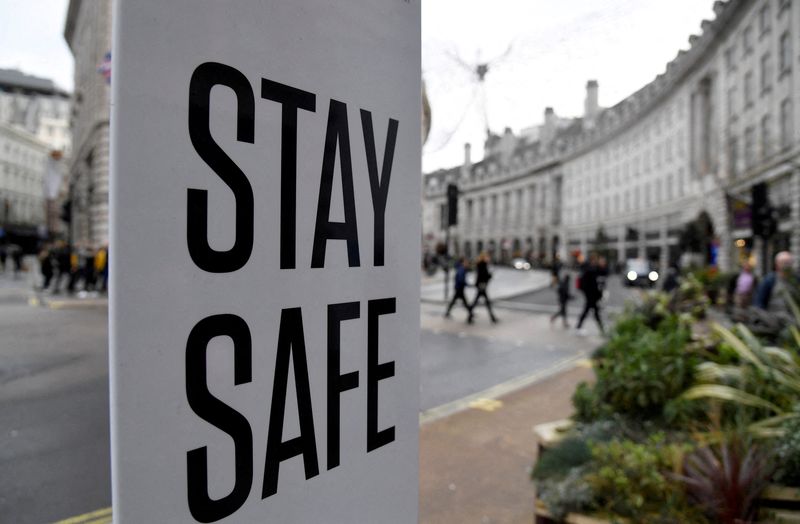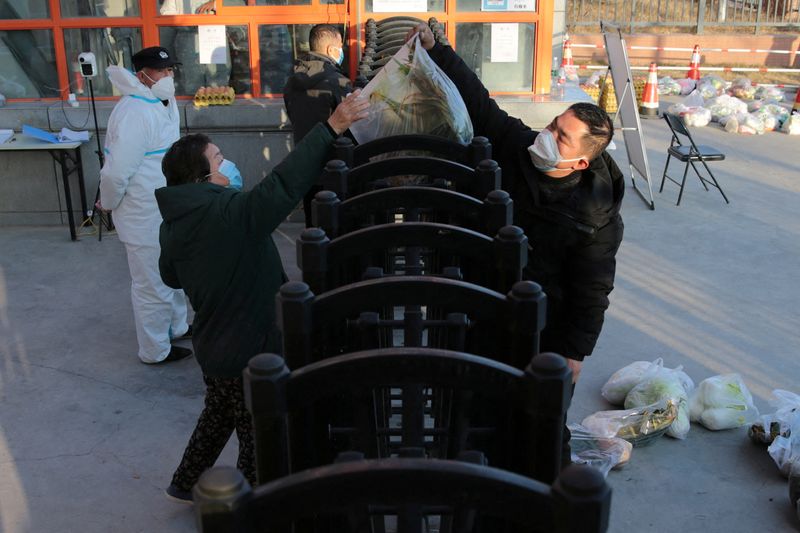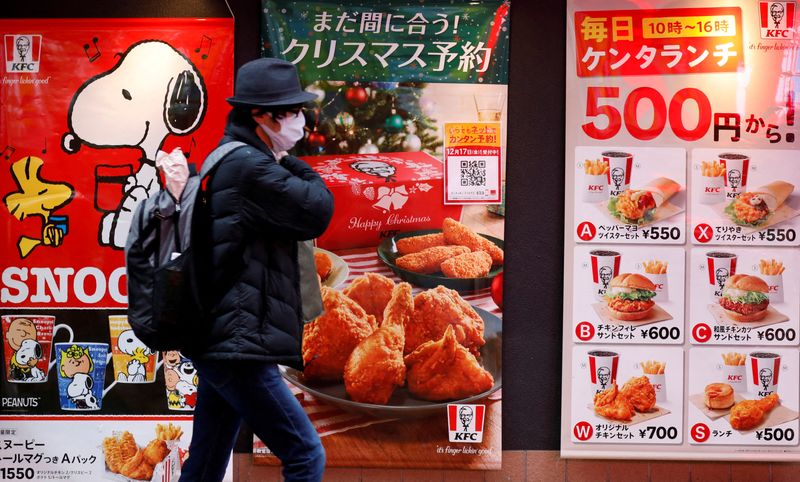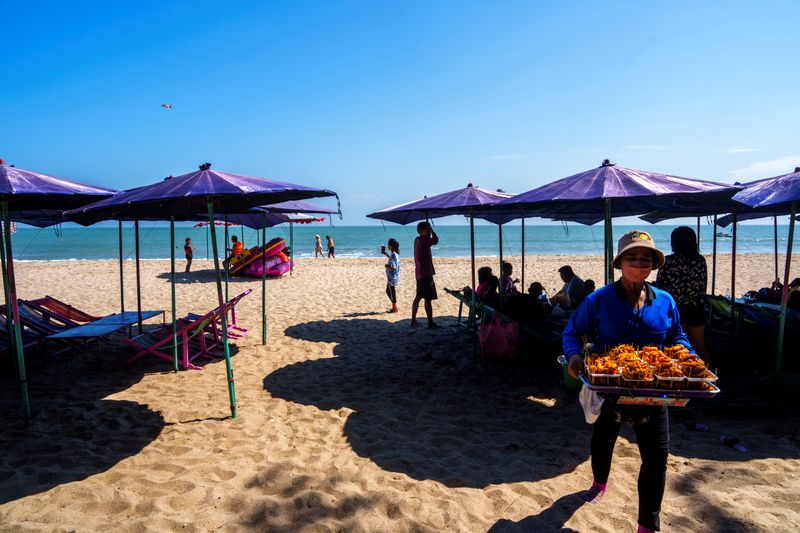(Reuters) -Here’s what you need to know about the coronavirus right now:
COVID-19 cases surge around world
Daily COVID-19 infections have hit record highs in the United States, swathes of Europe and Australia as the new Omicron variant of the virus races out of control, keeping workers at home and overwhelming testing centres.
Almost two years after China first reported a cluster of “viral pneumonia” cases in the city of Wuhan, the regularly mutating coronavirus is wreaking havoc in many parts of the world, forcing governments to rethink quarantine and testing rules.
Although some studies have suggested the Omicron variant is less deadly than some of its predecessors, the huge numbers of people testing positive mean that hospitals in some countries might soon be overwhelmed, while businesses might struggle to carry on operating because of workers having to quarantine.
China’s Xian in lockdown for 7th day
A lockdown of 13 million people in the Chinese city of Xian entered its seventh day on Wednesday, with many unable to leave their residential compounds and relying on deliveries of necessities as new COVID-19 infections persisted.
Xian reported 151 domestically transmitted infections with confirmed symptoms for Tuesday, or nearly all of the 152 cases nationwide, bringing the total number of local Xian cases to nearly 1,000 during the Dec. 9-28 period. No cases of the Omicron variant have been announced in the city so far.
Japan braces for Omicron spread
Japan was poised for a rebound in coronavirus cases as travellers converged on to highways and airports on Wednesday ahead of New Year festivities.
The governors of the metropolises of Tokyo and Osaka urged residents to keep end-of-year gatherings small as more cases of the Omicron variant come to light, including a suspected cluster at an Osaka nursing home.
Thai ‘super-spreader’ event may cause jump in cases
Thai health authorities warned residents to brace for a potential jump in coronavirus cases after classifying the country’s first cluster of Omicron cases as a “super-spreader” incident, during which a disease is spread more broadly than usual.
The cluster identified in the northeastern province of Kalasin on Christmas Eve has been linked to a couple who had travelled from Belgium and visited bars, concerts and markets.
UK’s Johnson warns of hospital risk for unvaccinated
British Prime Minister Boris Johnson warned on Wednesday that the overwhelming majority of patients ending up in intensive care with COVID-19 had not received their booster vaccine, as he urged people to get their jabs.
Britain is reporting record COVID infections, with 129,471 registered on Tuesday, driven by the Omicron variant. There have also been anecdotal reports of people struggling to get tests.
Belgium to make U-turn to allow theatres, cinemas to reopen
The Belgian government was set to reverse course on Wednesday by allowing theatres to reopen after a court suspended their closure ordered a week ago to try to stem a surge of infections from the Omicron variant.
The ruling from the Council of State did not cover cinemas, but the government says they, too, can reopen because they operate like theatres, with audiences seated, obliged to wear masks and only permitted entry with a COVID pass to prove vaccination, a negative test or recent recovery from the illness.
NYC to limit classroom closures
New York City will stop quarantining entire classrooms exposed to the coronavirus and will instead prioritize a ramped-up testing program so that asymptomatic students testing negative for COVID-19 can remain in school, officials said on Tuesday.
A day earlier, the U.S. Centers for Disease Control and Prevention shortened the recommended isolation time for Americans with asymptomatic cases of COVID-19 to five days from the previous guidance of 10 days.
(Compiled by Linda NoakesEditing by Bernadette Baum)




























